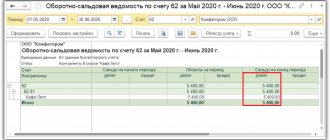The topic of this article is interesting in its ambiguity and surprise for a wide range of consumers, which, in fact, are all of us. “Is VAT withheld from individuals?” Ask a similar question to tax department employees, and you will receive a seemingly specific, but in fact a generalized answer that individuals are not included in the list of entities recognized as VAT taxpayers (Article 143 of the Tax Code of the Russian Federation). But is this really so, if you “dig deeper”? Let's try to figure it out.
How the law interprets VAT
To correctly understand the meaning of VAT, let us remember how the legislation interprets it.
Value added tax is a tax that must be paid by an economic entity on the volume of products, goods, and services sold.
Of key importance in determining the tax is the wording “added value”, which means the part of the sales value of goods or services that was added to the primary value of the taxable item directly by the seller. Even if you don’t know the exact size of this part, which today is 10 or 20% of the cost of services or goods, the line on the cash receipt “Including VAT” will always indicate the amount of VAT paid by the buyer to the nearest penny.
Who is the VAT payer?
In accordance with the provisions of Article 143 of the Tax Code of the Russian Federation, payers of value added tax are organizations, individual entrepreneurs and persons who moved goods across the borders of the Customs Union. The Tax Code also provides for exemption from taxpayer obligations of a company as a whole (Article 145 of the Tax Code of the Russian Federation) and exemption from tax of certain types of activities, goods, services and business transactions (clause 2 of Article 146 of the Tax Code of the Russian Federation, Articles 149 - 150 of the Tax Code of the Russian Federation). In addition, in the relevant chapters of the Tax Code, enterprises under special tax regimes (USNO, UTII, Unified Agricultural Tax, PSN) are exempt from the calculation and payment of VAT.
Is there a choice? No choice!
In order to find the answer to the question of whether VAT is actually withheld from individuals, let us turn to the main document - a cash receipt, in which the total amount contains two financial positions:
- actual cost of the goods;
- the amount of VAT included in the cost of goods (services).
Since VAT must be charged on the cost of almost the entire range of production products, goods sold or services provided, business entities include the tax in the final cost of the object of taxation, so to speak, “in addition” to the price, essentially “shifting” the tax obligatory for business entities to buyer's shoulders. This reveals the main feature of VAT: it is an indirect tax that is actually paid by the end consumer.
With this principle of price formation, the individual consumer ultimately has no choice whether to pay VAT or not, because the amount of tax is included in it and is not a separate payment. Accordingly, for every purchase in a store or receipt of various types of services, a citizen will pay VAT, which will be confirmed by a separate line in the receipt issued to him.
Does an individual pay VAT?
No, individuals in most cases are not VAT payers. By virtue of Article 143 of the Tax Code of the Russian Federation, such an obligation arises for them only when they import across the border of the Customs Union a consignment of goods to be sold on the territory of the Russian Federation. But even in this case, they most often must have the status of an individual entrepreneur.
As for individuals who regularly carry out economic activities without registering as an individual entrepreneur or legal entity, they may be required to pay tax by decision of the Federal Tax Service. Judicial practice (Resolution of the Arbitration Court of the Volga-Vyatka District dated December 21, 2005 N A28-12960/2004-565/23)
shows that
By virtue of Article 11 of the Tax Code of the Russian Federation, individuals who carry out entrepreneurial activities without forming a legal entity, but do not have registration as individual entrepreneurs in violation of the requirements of Russian legislation, do not have the right to refer to the lack of individual entrepreneur status when collecting tax arrears from them. It should be noted that the only qualifying feature in this case is the systematic receipt of profit from the sale of goods, works or services.
In addition, there are categories of individuals such as lawyers and notaries. They have the right to work without forming a legal entity and without having the status of an individual entrepreneur. Their VAT payment situation is much more complicated than that of other individuals. By virtue of Article 11 of the Tax Code of the Russian Federation (as amended by Federal Law dated July 27, 2006 N 137-FZ “On amendments to part one and part two of the Tax Code of the Russian Federation and to certain legislative acts of the Russian Federation in connection with the implementation of measures to improve tax administration”) Since January 1, 2007, all lawyers who have established law offices are not recognized as individual entrepreneurs. This means that from this date they are a priori not VAT payers. When they provide services to citizens and organizations within the framework of their professional activities, they do not calculate or pay value added tax.
Whereas notaries have transactions that are exempt from tax and transactions that are subject to tax. The first includes all notarial acts for which Russian legislation provides for a mandatory notarial form and for which a state fee is charged, as defined in Article 22 of the “Fundamentals of the Legislation of the Russian Federation on Notaries.” For all other notarial actions, namely:
- certification of various contracts for the alienation of real estate,
- certification of donation agreements,
- certification of leasing agreements,
- certification of other contracts,
- certification of powers of attorney and other documents,
The notary must calculate and pay VAT. Therefore, he keeps a sales book and a purchase book and always submits tax returns.
Does the organization pay VAT on advances?
Yes, in the same period when the advance was received. A separate invoice is prepared for each payment. Theoretically, it is now possible not to issue invoices to tax-defaulting buyers; in practice, it is more convenient and safer to issue them in any case.
However, if the seller is exempt from VAT or the advance is received for the sale of goods or services taxed at a zero rate, there is no need to pay tax on the advance. Also, by virtue of paragraph 13 of Article 167 of the Tax Code of the Russian Federation, advances received for operations with a long production cycle are exempt from VAT (the product or service will be delivered to the buyer no earlier than six months from the date of receipt of the advance payment).
Where else is VAT collected from individuals?
“Hidden taxation,” which is actually VAT for individuals, is included not only in the cost of goods purchased in a store.
A careful study of financial documents will reveal that VAT is included in the cost of services of utility and management companies, postal and mobile operators, transport companies involved in cargo and passenger transportation, a number of medical services and products, training in educational institutions, and in other areas of business that provide services to individuals.
Why do individuals still pay VAT?
Be that as it may, it is individuals, that is, final consumers, who are the direct payers of this tax, but since most do not know about it, it is often called indirect.
The fact is that VAT arises when value is created, because the tax itself provides for the collection of bribes precisely for this. But the system is designed in such a way that the final link in the chain is often an ordinary individual. VAT occupies a leading position in the final cost of goods, often surpassing in values such indicators as costs of production, transportation, and advertising.
And even knowing this, there is no way to return VAT to an individual, because from the point of view of the law, individuals do not pay it!
VAT payers: de jure and de facto
Summarizing the above, we can confidently draw three conclusions:
- Formally, as mentioned above, the list of VAT payers is established by the norms of Article 143 of the Tax Code of the Russian Federation and there are no individuals in it. In fact, VAT, which is part of the selling price of the product, is paid by the end consumer of the product, including the individual who used the services or purchased the product, the price of which already includes VAT at the time of purchase.
- The answer to the question “is VAT charged from individuals?” is obvious - yes, in fact, it is charged. And companies, legally recognized as taxpayers, by allocating VAT from the collection amount and transferring it to the budget, act as a collector and transit link between the actual tax payer and the budget.
- Since tax legislation allows business entities operating on OSNO to accept the VAT they paid upon purchase as a tax deduction, we can say that for the most part, it is individuals who do not have this opportunity (except for the right to return tax under the tax free system for some purchases made abroad) are the main payer of VAT to the budget.
Do I need to pay VAT as an individual entrepreneur?
Yes, individual entrepreneurs are taxpayers under this chapter of the Tax Code and are exempt from payment in the same cases as legal entities. There is no need to submit declarations and pay tax for individual entrepreneurs on the simplified tax system, UTII, PSN, Unified Agricultural Tax or individual entrepreneurs receiving revenue of less than 2 million rubles. in three months. The same relaxations apply to certain types of goods and services as for LLCs, but in this case entrepreneurs must report in other areas.
In addition, whether an individual entrepreneur pays value added tax depends on the implementation of import operations: when importing goods into the territory of the Russian Federation, declarations and payments to the budget are required. Article 150 of the Tax Code of the Russian Federation lists rare exceptions to this rule.
Is VAT charged on personal income?
This is where individuals can breathe freely - no, VAT is not charged on their income.
The income of individuals is subject to income tax (NDFL), which is withheld when calculating wages and other income. Citizens registered as self-employed pay tax on professional income, which is currently valid only in a few regions. You can find more complete information on the topic in ConsultantPlus. Free trial access to the system for 2 days.
Case No. 1: VAT was collected for renting out an office and part of a residential building
An individual (a certain T.) rented out part of a residential building and an office from 2009 to 2011. T. was not registered as an individual entrepreneur.
The landlord of the premises conscientiously calculated and paid personal income tax on the rent received.
In 2013, T. registered as an individual entrepreneur and declared to the tax office that he rents out his own residential and non-residential premises. The Federal Tax Service drew attention to this situation and decided that renting out premises from 2009 to 2011 (that is, while T. was not yet an individual entrepreneur) was entrepreneurship, since “the activity of renting out premises was long-term and systematic.”
The fact that the tenant paid personal income tax on the rent did not help the situation at all.
The courts, including the Supreme Court, supported the inspection. The judge's ruling to refuse to transfer the complaint via this link (case No. 306-КГ15-11736).
Renting non-residential premises - entrepreneurial activity
From January 1, 2022, the VAT rate is 20% and according to Art. 143 of the Tax Code of the Russian Federation, when selling services within the framework of non-entrepreneurial activities, individuals are not considered VAT payers. However, we must pay attention to the definition of entrepreneurial activity. Taxpayers, as a rule, believe that since they did not register an individual entrepreneur, they did not conduct any business activity. But the tax authority thinks differently. What could be the arguments of a tax authority that considers the activity of leasing non-residential premises to be entrepreneurial?
- Non-residential premises are intended for commercial use and are not intended for personal use. How can we explain the use of a depot building, a warm parking lot for tractors, a main production building, a transformer substation, a water tower, an industrial garage, an administrative building, a store, a shopping pavilion, an office space for personal and family purposes?
- The purpose of providing premises for rent is systematic and long-term profit-making.
- The stability of ties is evidenced by the consistency in the choice of counterparties when concluding lease agreements.
- Renting out premises is carried out at your own risk.
- The lessor pays the costs associated with the operation of the property, utility bills, and repairs, which indicates the presence of economic activity in the activities of the individual.
- The lessor bears the risk of accidental loss of property as the owner, as well as risks in the event of a change in the economic situation.
- Lack of registration as an individual entrepreneur does not refute the actual conduct of business activities.






